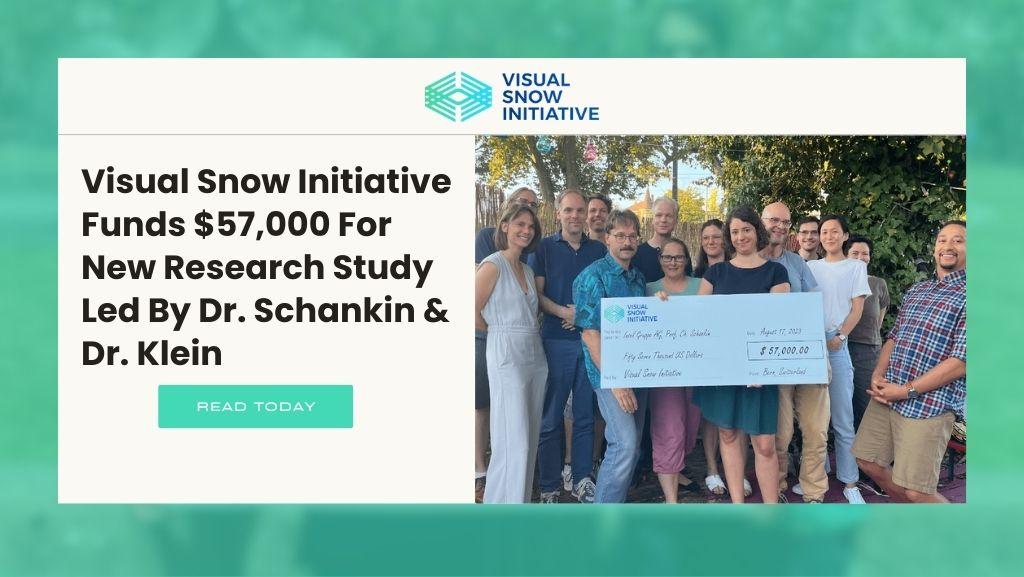We are pleased to announce our funding for a new Visual Snow Syndrome research study led by Dr. Christoph Schankin, Head of the University Clinic at Inselspital, Department of Neurology in Bern University Hospital, and Dr. Antonia Klein, resident in Neurology at Inselspital, Bern University Hospital.
Information About the Study
According to Dr. Schankin and Dr. Klein, Visual Snow Syndrome (VSS) appears to be a complex issue in the visual system that causes visual disturbances that are typically filtered out, leading to hyperactivity in this system.
Their approach to understanding and potentially treating VSS involves neuromodulation through transcranial alternating current stimulation (tACS). By applying a current to the scalp, which penetrates the brain, they aim to redirect brain function in the right direction and reduce symptoms.
Their primary goal is to pinpoint the specific areas in the brain where something is not functioning as it should. To achieve this, they are blending various diagnostic markers with a treatment-oriented methodology.
Their study will begin with comprehensive visual tests, MRI, and EEG measurements. These EEG readings enable researchers to visualize the patterns of electrical activity on the brain’s surface. Related to this, previous research has demonstrated the capability of tACS to entrain specific brain rhythms. Moreover, these methods have been successful for other conditions, such as tinnitus, chronic pain, and depression.
The underlying idea behind VSS is that multiple neural networks in the brain remain overly active, bombarding the visual system with an excess of information. However, tACS offers the possibility of modulating these networks.
Dr. Schankin and Dr. Klein are particularly interested in observing how this stimulation affects VSS symptoms, influences performance in tasks, and whether there are alterations in EEG patterns in patients with VSS. Ultimately, they seek to determine if these effects are long-lasting to develop a treatment plan.
Stay tuned for more updates on VSS research via our website, newsletter, and social media channels.
Your support can help make a positive difference in the lives of people affected by VSS worldwide.
Thank you.


